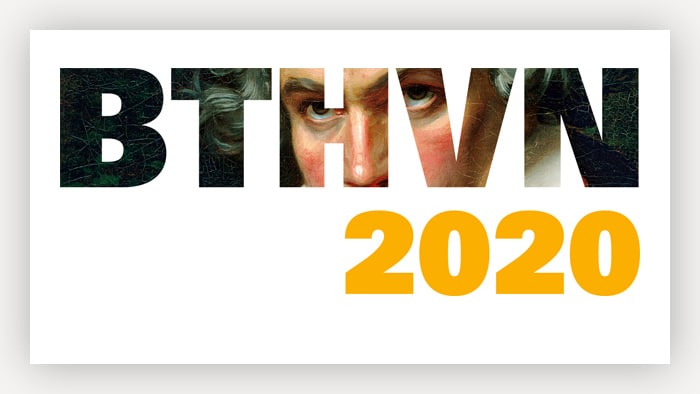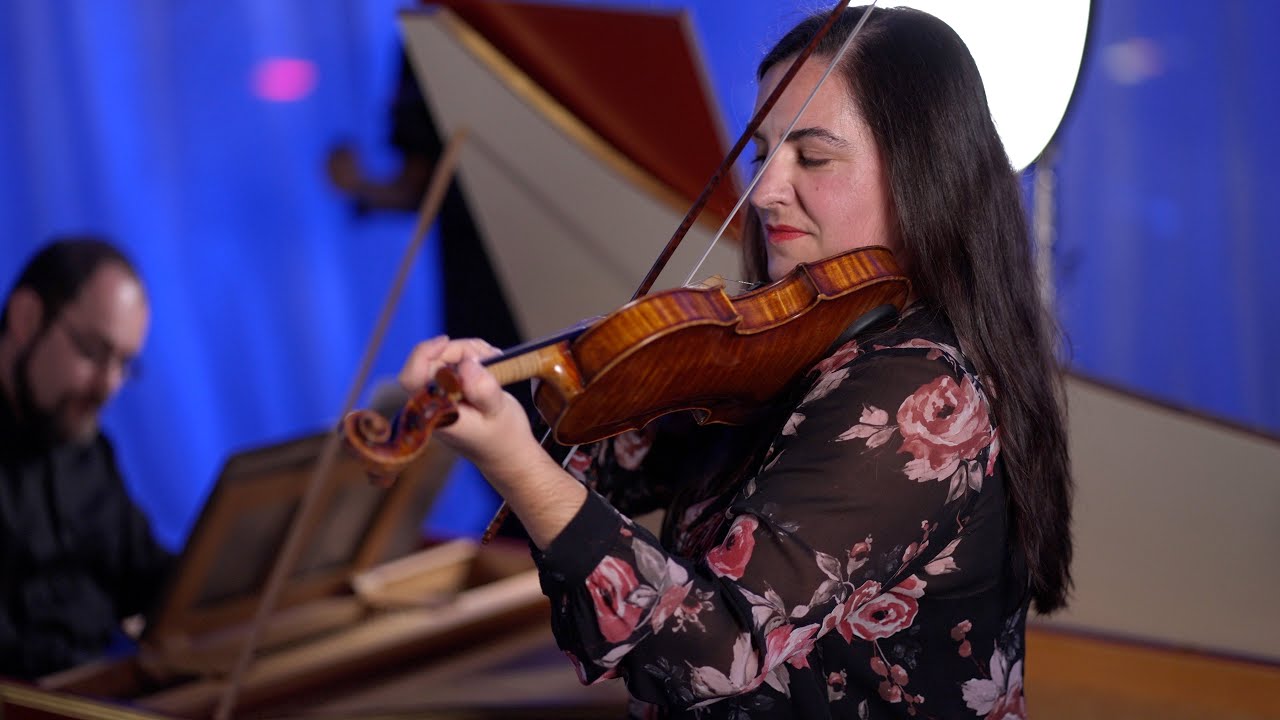Let’s do without Beethoven
mainWelcome to the 20th work in the Slipped Disc/Idagio Beethoven Edition
An American musicologist proposed the other day that the best thing we could do for music was to shut down all Beethoven performances in his anniversary year and replace them with new works.
Oh, and here’s one of her esteemed colleagues:
Even as the classical music world is reckoning with diversity, equity, and inclusion as essential goals, we’re elbowing people out of the way for *Beethoven*: the mythical dead white European hypermasculine genius hero that personifies the canon. 4/8
— William Gibbons (@musicillogical) December 27, 2019
Regardless of whether anyone would pay to hear a year of novelties and divergences, there is an anti-musical line behind this misconception that needs to be tackled head-on. Put simply, if we take Beethoven out of the mix, everything else crumbles to dust. The vast majority of people who go to concerts build their appreciation and understanding of music around the monumental centrality of the Beethoven symphonies, and the vast majority of musicians learned the rudiments of music from the structural security of the sonatas. Take them away, and what’s left?
Look at the history of music and imagine what it might have been without Beethoven. No-one else had the vision, the boldness and the will to liberate music from its pretty classical corsets and shove it into the forefront of public and political attention. No composer until Wagner half a century later has the energy and the stubbornness to transform German music, or until Verdi to shake Italian opera out of torpor and trivia. If Beethoven had not make his breakthrough in the 1790s, Wagner and Verdi would have lacked the foundations for their revolutions and western music would have been a much inferior art.
It’s just as well that I am writing these thoughts in English, since that language presents the perfect analogy. Without the impact of Shakespeare, English would have been less flexible, colourful and lyrical. It’s not just the dozens of everyday expressions that we owe to the Bard: we actually owe him the ability to speak and write more freely, to play with language like plasticine, to discover its deep-buried resources and to release its nobility. That’s what Beethoven does in music.
To eliminate him makes music nonsensical and musicology redundant. That’s how ridiculous the suggestion is.
*

Our Beethoven a Day is the Septet, opus 20
It’s not entirely certain that Beethoven invented the septet form, but he certainly established it with this 40-minute work for clarinet, horn, bassoon, violin, viola, cello and double-bass. Rather than miniaturizing an orchestral sound, he creates an alternative sonority, at once astringent and appealing, in which each instrument has its own palette of colours within the ensemble.
First heard at the concert where Beethoven premiered his first symphony, the symphony was an instant hit, his most steady earner for the rest of his life. Schubert took it as a model for his indelible octet, while the less scrupulous Hummel and Spohr produced slavish imitations. The 3rd movement (of 6) shares the minuet of his 20th piano sonata. A 1959 performance by the Vienna Octet seems incontrovertible in terms of tempo and atmosphere.
The Berlin Philharmonic Octet are altogether more muscular. Joseph Silverstein leads a particularly frisky version in upstate New York.
Leonidas Kavakos and Munich friends in 2019 appear, by comparison, undernourished.
I’m drawn to Gervase de Peyer and the creams of mid-century British musicians. How’s this for a cast?
Melos Ensemble, Gervase de Peyer (Clarinet), Neill Sanders (Horn), William Waterhouse (Bassoon), Emanuel Hurwitz (Violin), Cecil Aronowitz (Viola), Terence Weil (Violoncello), Adrian Simon Beers (Double Bass)





I for one worry very little about nonsensical suggestions such as these. Beethoven will play on regardless of offhanded comments written by someone sitting in an office somewhere — I dare say, someone looking to gain a little attention by writing outlandish and provocative things. I will go to my piano now and play a couple of Beethoven sonatas. I will enjoy them immensely.
Lets hold onto classics firmly, but also play more new music. In recent years there is an increasing trend to program lighter fare when it comes to modern music, such as film music, tango & minimalism. This is regrettable, as ideally music should provide both emotional & intellectual stimulation.
Film music and tango CAN provide both ‘emotional & intellectual’ stimulation. I am less sure about ‘minimalism’ …
Without Beethoven there would have been just Hummel
And Muzio Clementi…
Reminds me of the famous “Life Without Mozart” cartoon:
http://photos1.blogger.com/img/5/2980/640/mozart.jpg
Thank you, Norman.
===Without the impact of Shakespeare, English would have been less flexible, colourful and lyrical.
This is exactly what the great Harold Bloom (Yale literature prof who died recently) emphasised throughout his long prolific life.
And Bernard Levin on Shakespeare:
If you cannot understand my argument, and declare “It’s Greek to me”, you are quoting Shakespeare; if you claim to be more sinned against than sinning, you are quoting Shakespeare; if you recall your salad days, you are quoting Shakespeare; if you act more in sorrow than in anger; if your wish is farther to the thought; if your lost property has vanished into thin air, you are quoting Shakespeare; if you have ever refused to budge an inch or suffered from green-eyed jealousy, if you have played fast and loose, if you have been tongue-tied, a tower of strength, hoodwinked or in a pickle, if you have knitted your brows, made a virtue of necessity, insisted on fair play, slept not one wink, stood on ceremony, danced attendance (on your lord and master), laughed yourself into stitches, had short shrift, cold comfort or too much of a good thing, if you have seen better days or lived in a fool’s paradise -why, be that as it may, the more fool you, for it is a foregone conclusion that you are (as good luck would have it) quoting Shakespeare; if you think it is early days and clear out bag and baggage, if you think it is high time and that that is the long and short of it, if you believe that the game is up and that truth will out even if it involves your own flesh and blood, if you lie low till the crack of doom because you suspect foul play, if you have your teeth set on edge (at one fell swoop) without rhyme or reason, then – to give the devil his due – if the truth were known (for surely you have a tongue in your head) you are quoting Shakespeare; even if you bid me good riddance and send me packing, if you wish I was dead as a door-nail, if you think I am an eyesore, a laughing stock, the devil incarnate, a stony-hearted villain, bloody-minded or a blinking idiot, then – by Jove! O Lord! Tut tut! For goodness’ sake! What the dickens! But me no buts! – it is all one to me, for you are quoting Shakespeare.
Well, it seems that the question is, to be or not to be quoting Shakespeare.
I agree with you, NL!! Beethoven will live forever while most so called “new works” are one-day butterflies and will die off very soon.
That’s how it has always been: most art vanishes over time and only a very low percentage endures.
(Fame during the composer’s lifetime is no guarantee, either: how familiar are we with the works of Meyerbeer or Cherubini?)
Well, this is about Beethoven, is it? For me I stay with him.
It will be most interesting, now that orchestras in the States are announcing their 20-21 seasons, to see how much, or little, Beethoven gets programmed. If one has done a cycle this season, will they forego any in the subsequent year?
Recalling Norman’s inability/refusal a few days ago to recommend any single recorded cycle of Beethoven symphonies – wise move – maybe the question ought to be: If an orchestra has done a Beethoven cycle this season with one conductor, should the same conductor do another cycle with that orchestra next season? (Spoiler alert: No.)
I think the most ear-opening and least oppressive way to do a cycle, of Beethoven or any other composer, is to leaven it by playing contrasting or complementary works in each program. Instead of four Beethoven piano sonatas, two Beethovens mixed with two Haydns or a Haydn and a C.P.E. Bach (or, if you’re feeling really frisky, the Voříšek Op. 20). Instead of the Fifth and Sixth symphonies, the Sixth alongside the Mahler Fourth.
Potential pairings and groupings abound, from the obvious to the startling, from the period-sensitive to the century-hopping. Assembling a cycle with “detours” drives home the centrality of Beethoven. It does make for a longer cycle, which might also be called a season.
My local orchestra (Louisville Orchestra) has exactly one Beethoven work programmed this 19-20 season – the 8th Symphony, coming up in April.
Don’t think they’ve come out with 20-21 season programs yet, so there could be more forthcoming in the Fall, but hardly an over-supply of Beethoven in this neck of the woods.
A protest against the egalitarian view that ‘anything goes’ and that qualitative hierarchies in culture are mere instruments used by the ‘bourgeoisie’ to preserve its dominance. Because protests against the presence of B in concert life are often protests against qualitative authority.
But B’s ‘transformation of German music’ and his ‘liberation of music from its pretty classical corsets’ was not his own, personal project plan, carried-out in a hostile world. To a great extent, B was a product of his time when music became a category of its own, due to philosophy and early romanticism (which began in the last quarter of the 18th century), instead of a craft in the service of church and court, and in a political atmosphere fuelled by Enlightenment thought and revolution.
Also, B’s career was ‘made’ by his environment, his supporters (especially from the nobility), and the early development of public concerts. He cannot be held as the sole cause of the success of his music. The miracle is, that he – forced by his handicaps – went deep into his irrational instincts and imagined a future world which only came into being much after his death, and of which he must have felt the beginnings in his own time, in spite of surface fashion changes (Rossini etc.).
After 1815 the idealistic world view cultivated by B and the Enlightenment thinkers and artists was evaporating in the Restoration, when the clock was turned back, and society dumbed-down again after the revolution and the napoleonic wars. There seemed to be no perspective for exactly the ideals that kept B going. Yet, he kept going, all on his own.
Concerning those corsets: they were not at all mere decorative entertainment assets, but an aesthetic and expressive equilibrium which had been developed by many composers through experiment and daring trial, from CPE Bach onwards, and to which composers like D Scarlatti contributed enormously. Haydn and Mozart were considered in their time as romantics, and especially the latter achieved sublime balances between expression and formal suave. Classical art offers a catalogue of workable basic rules which prevents minor talents from sinking into their own black hole (in all the arts), but great talents play with the rules and create something that transcends these rules (Haydn, Mozart, Beethoven, Mendelssohn, Schumann, Brahms).
Beethoven did not merely ‘break the rules of classicism’ but instead reestablished them on a bigger scale and found very personal ways of creating classicist structures. Even his wildest pieces have, under the surface, a thorough organisational character which is entirely classicist, including the famous ‘late works’. Even and especially the Ninth is thoroughly classicist in all its formal designs.
So, it is a bit more complex picture.
http://subterraneanreview.blogspot.com/2016/01/notes-on-beethoven.html
Andrea Moore is a 2016 Ph.D. and an assistant professor at Smith. No way does that equal “tenured.”
He might have got tenure as an assistant professor. He would be up for review after about three years.
And get rid of your British audiences at least and income at the same time!
Looking forward to seeing Fidelio from Covent Garden in March and whatever Beethoven there is at the BBC Proms in London, andviano recitals of the sonatas in Leeds.
Instead of Beethoven I think orchestras should play more works by unsung composers like Stenhammar, Svendsen, and Taneyev. And Steinberg, Glazunov, Balakirev, Borodin, etc..
Why ‘instead of’? Why not ‘in addition to’?
Three cheers for that. Add Mendelssohn, Greig, Max Bruch, Ernest Bloch, Copeland, and many other less overplayed composers
That spelling of Copland is Grieg to me.
And pianists Alkan, for example. Or Sorabji. But we can have both LvB and all those others (all good choices).
You’d think that champions of “diversity, equity, and inclusion” would be delighted by a massive celebration of a disabled composer from a low-status social background with an abusive father.
There’s no pleasing some people.
Ah, but he’s white, European, male, and Christian (at least nominally, however unorthodox). Four strikes against him according to today’s PC/SJW orthodoxy.
But he was disabled (hearing-impaired), and possibly gay. So not without a few redeeeming characteristics.
Notably his ability to compose is not listed as a significant factor.
How very millennial.
Beethoven’s mother was mulatto. Pictures of him with white skin and rosy cheeks are misrepresentations. After all, Germany’s greatest composer could not be part black, could he?
If we claim her as transgender, then really nobody could object to Beethoven being played every day.
That’s a nonsense trope, there is a long tradition of attempts to ‘claim’ B as a ‘black’ for PC diversity reasons.
There were Africans of different sorts in Europe from time immemorial – Roman armies contained African soldiers – and many of them were fully accepted, before colonialism and slavery became identification points and spoiled the subject. The most you can get concerning B’s ‘dark’ complexion, was a drop of Spanish/Moorish blood far back in his ancestry:
“It is not entirely implausible that Beethoven had a tiny fraction of Moorish ancestry. The Moors occupied Spain for close to 800 years (711 to 1492), and the Spanish Crown (Habsburg Spain) occupied The Spanish Netherlands from 1581 to 1714. This region comprised all of modern Belgium and Luxembourg, as well as parts of northern France and Germany. As Beethoven’s name implies, his ancestral heritage stems from this region. Spread over so many centuries, the Moorish part of his DNA would likely be very small.”
https://slippedisc.com/2015/06/was-beethoven-an-african/
Also, B was an ‘outdoor person’, walking as much as he could in the surrounding fields and woods, also in summer heat, so he got ‘tainted’ by the colour of peasants and labourers who, due to their profession, did not cultivate the ‘delicate whiteness’ of haute bourgeoisie and nobility in those days.
John, thou dost protest too much. While there are those who say one drop of black makes a person black, I mentioned that Beethoven’s mother was mulatto. That could include a wide range of black ancestry. Your defense of his whiteness, to the exclusion or possibility of black ancestry, regardless of amount, is also a tiresome trope. Racists will embrace such a viewpoint, and rise to defend it.
In the immortal words of Mark Twain – ‘Never argue with a fool – if you do, onlookers may not be able to tell the difference’.
To my great regret, never once, as violinist or violist, have I been invited to a Beethoven Septet party. String quartet and quintet evenings, yes, Mendelssohn Octet parties, yes, duet evenings, for sure. Musical birthday parties for both Bach and Beethoven, yes.
I guess I need to know more wind players.
It is obvious that Mr. Gibbons has not looked at all the diverse and creative programming that is not focussed on performing of Beethoven’s great music, but working with composers, painters and other creative types to celebrate the universality of Beethoven. May I suggest he visit the website of BTHVN2020.
Nobody’s going to “take Beethoven out of the mix”, so it’s kind of a straw man argument to even suggest something like that. But I disagree with Norman that if that were to happen, everything would crumble to dust. Nice imagery, but not so, really. I for one have heard one-too-many broadcast performances of the Beethoven ‘Top Ten’, so I’m up for a break. I’m much more interested in the less heard, less assayed LvB, and I think all would benefit from more of that than a 600th performance of the Eroica Symphony. At least I would.
We can’t do without Beethoven, nor should we want to, but we could certainly do without “BTHVN.” This inane advertising trend of printing words without vowels really need to stop.
Beethoven allegedly said, “There are and will be a thousand princes; there is only one Beethoven.” I would like to substitute ‘so-so composers’ for “a thousand princes”.
“Beethoven liebte die Menschheit, seine Haushälterin ausgenommen. Deshalb werden Sie verstehen warum ich Sie, nach Ihrem gestrigen Benehmen, entlassen muss.“ Theodor Adorno in a private letter to his housekeeper.
I agree with your essay completely, Norman. I’ve often thought of Beethoven as “the Shakespeare of music”.
And I agree with your choice of Septet performances. The Gervase de Peyer et al ensemble can’t be beat.
Nothing speaks more eloquently and powerfully to the feebleness and impotence of contemporary music than “advocates” of it who are afraid of a composer who has been dead for nearly 200 years. And a disabled (excuse me, “differently abled”) one at that.
Toscanini’s arrangement of the Septet is not to be missed. Especially the 1939 Beethoven cycle performance. And let’s have some boldness here and revive Weingartner’s Hammerklavier for full orchestra.
Is this article serious?
Looks folks, most people can’t handle the truth let along new music. Contemporary music is to art what raw spinach is to adolescence. (And that might give you a clue into the contemporary concert goer.)
Contemporary music which does not fit within the regular concert format, in terms of aesthetics, musical meaning, instrumentation etc. etc., has created its own separate scene. The occasional new music getting an airing on orchestral programming does not represent ‘contemporary music’ as a whole and thus it is impossible to give a generalized description of it.